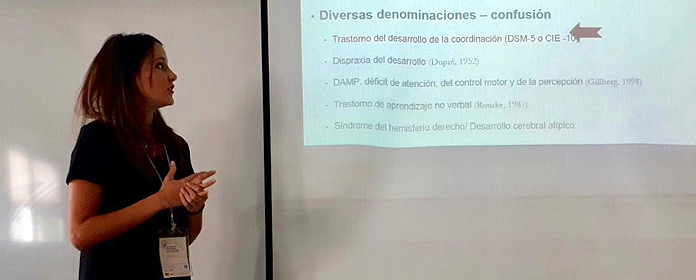The School of Education and Psychology present at the XIV congress international of psychopedagogy of the University of Minho, in Portugal.
Researcher Leyre Gambra and psychopedagogue Sara Magallón discussed Procedural Learning Disorder.

The XIV congress international conference on psychopedagogy held last September 5-8 at the University of Minho, (Braga, Portugal), had as speakers the psychopedagogists of the University of Navarra Leyre Gambra and Sara Magallón. School from Education and Psychology University of Navarra Leyre Gambra and Sara Magallón. The texts presented were also authored by Nerea CrespoD. in Psychopedagogy at Clínica Universidad de Navarra and professor at the University.
During her intervention at meeting, Leyre Gambra gave a talk on "The pragmatic use of language and the cognitive function of central coherence". Gambra stated that there is a relationship between central coherence (the tendency of the cognitive system to integrate information globally and give it meaning in context) and some of the dimensions of pragmatic language use. He also pointed out that the term central coherence has been used in most research focusing only on visual aspects and not so much on the verbal part; therefore, there are few diagnostic tools, few methods and few psychoeducational intervention strategies .
In another intervention, Gambra dealt with Procedural Learning Disorder and its psycho-pedagogical intervention. The researcher presented the characteristics and diagnostic criteria of Procedural Learning Disorder (PLD), a condition that causes clumsiness in movements and is usually accompanied by attention deficit, difficulties in reading, writing and language use. Gambra also stressed that it is a little known condition. Finally, he reviewed the main methods of motor intervention and pointed out the most effective ones.
For her part, Sara Magallón described the study she conducted on the cognitive profile that characterizes children affected by TAP. Due to the frequent association of TAP with other disorders such as attention deficit hyperactivity disorder (ADHD) or dyslexia, these profiles were also analyzed. The results of the study indicated that there were common characteristics with TAP, despite the fact that there are specific features in each pathology. "Therefore, it is crucial to look at them to make a correct differential diagnosis," he said.




